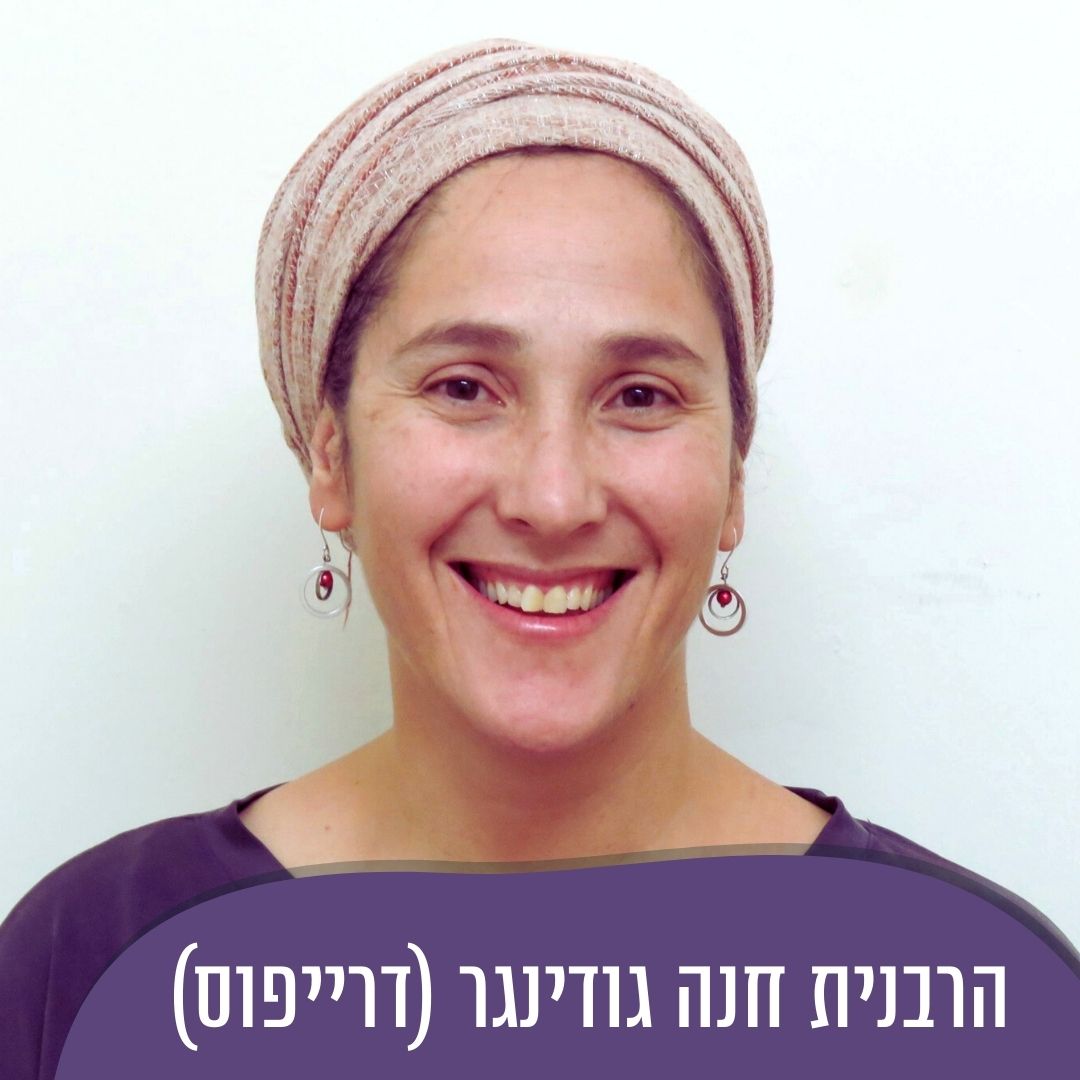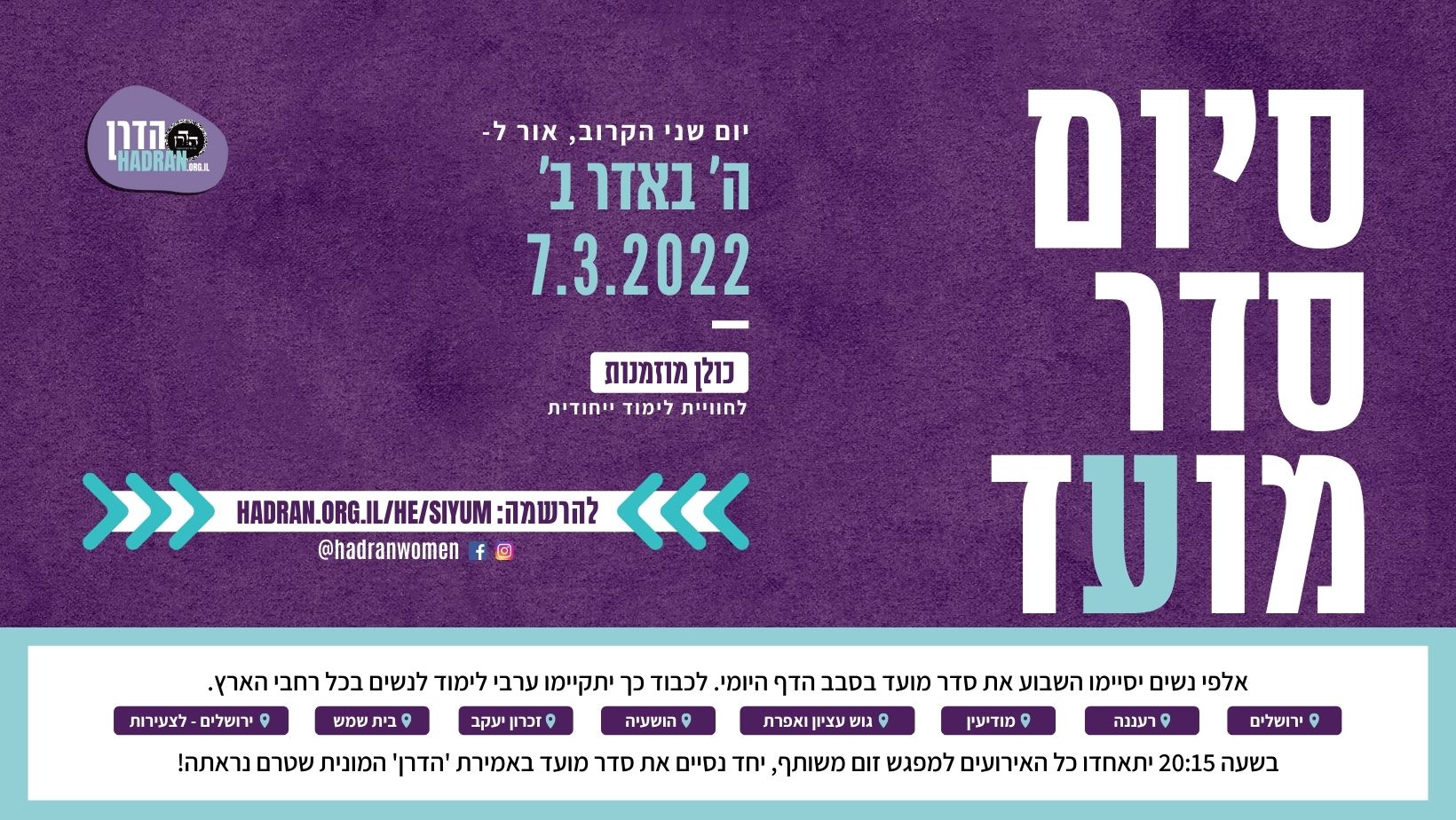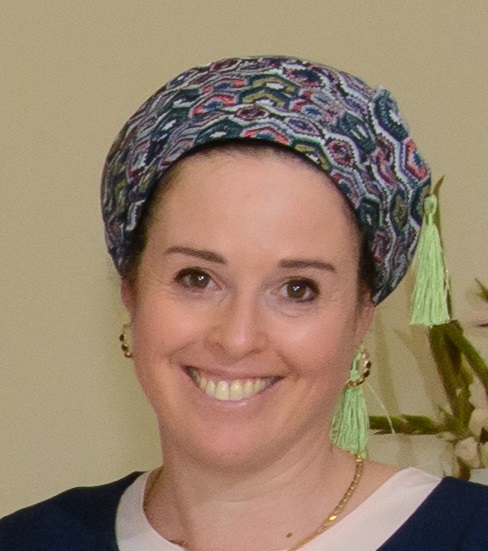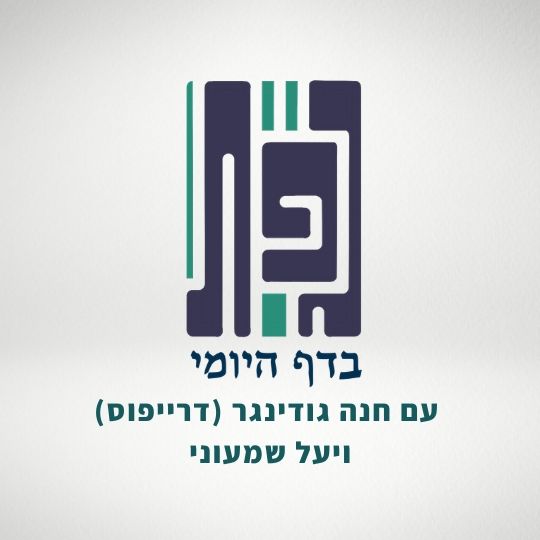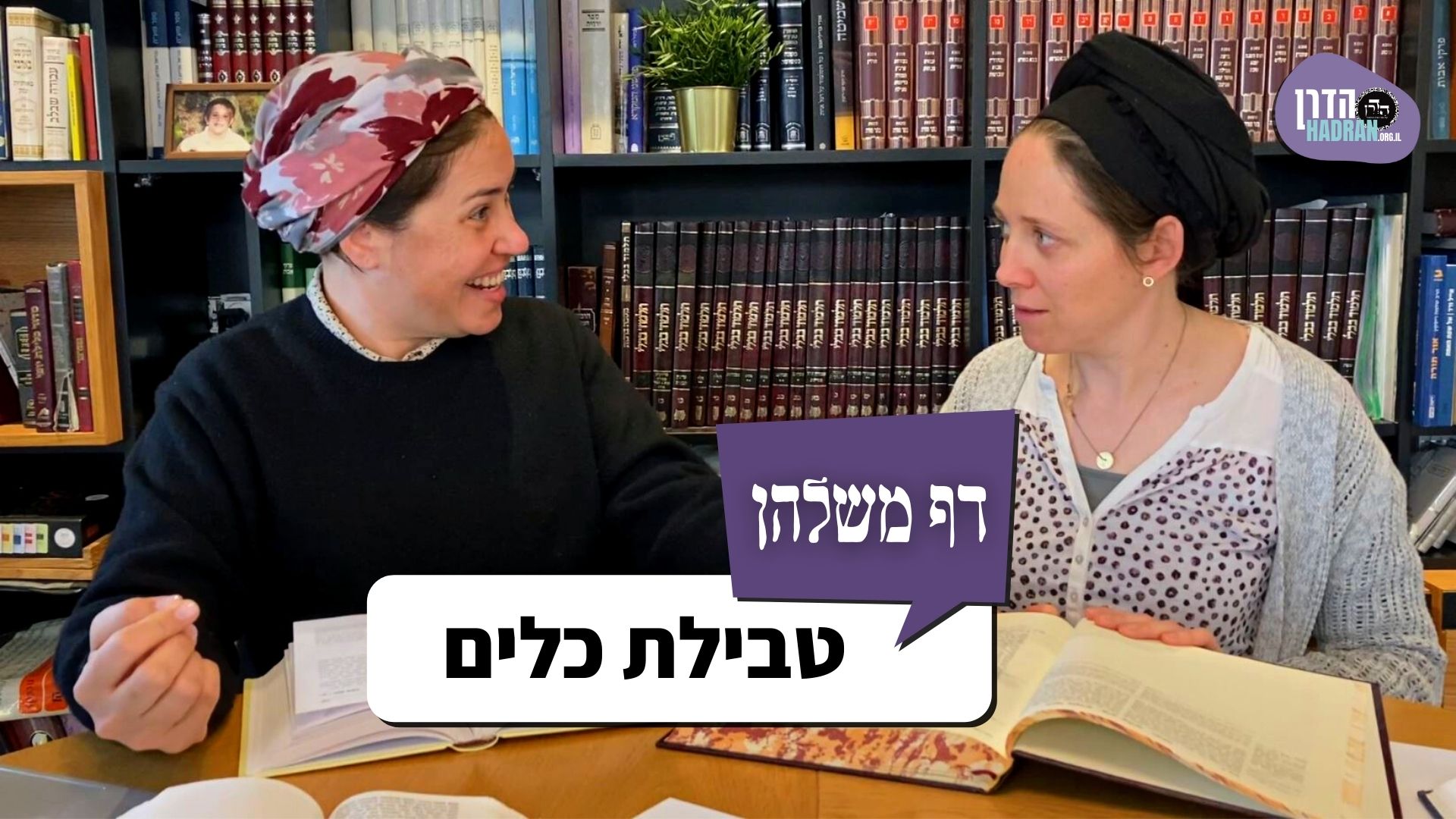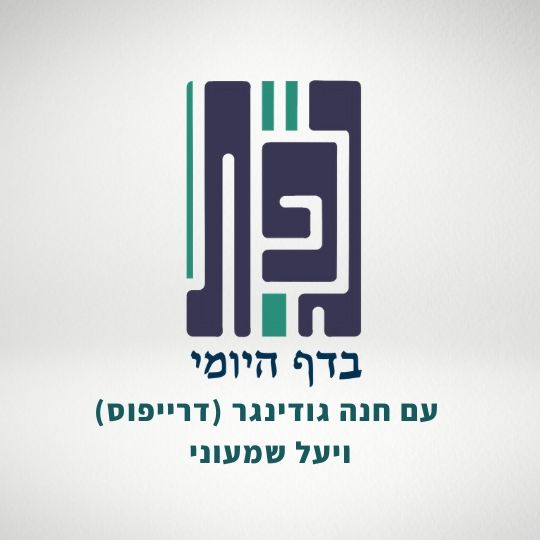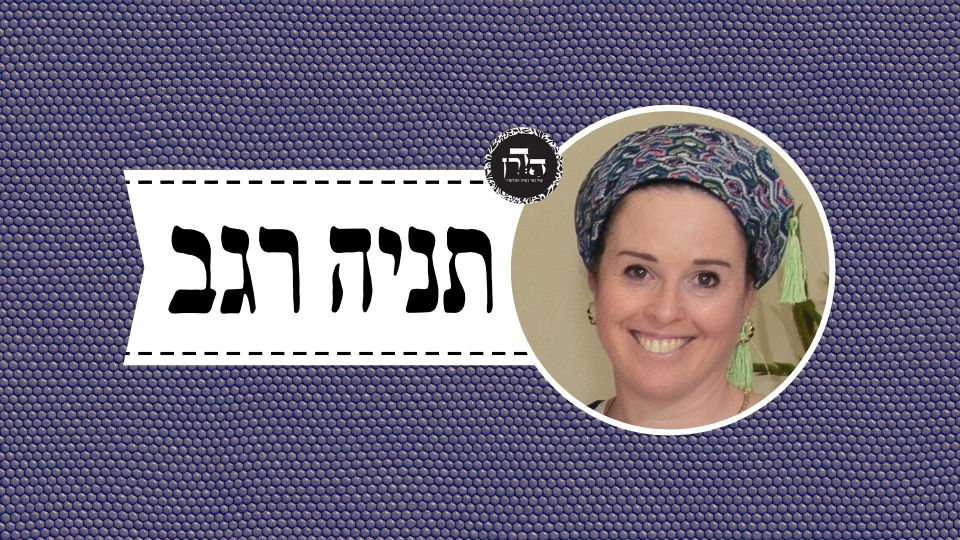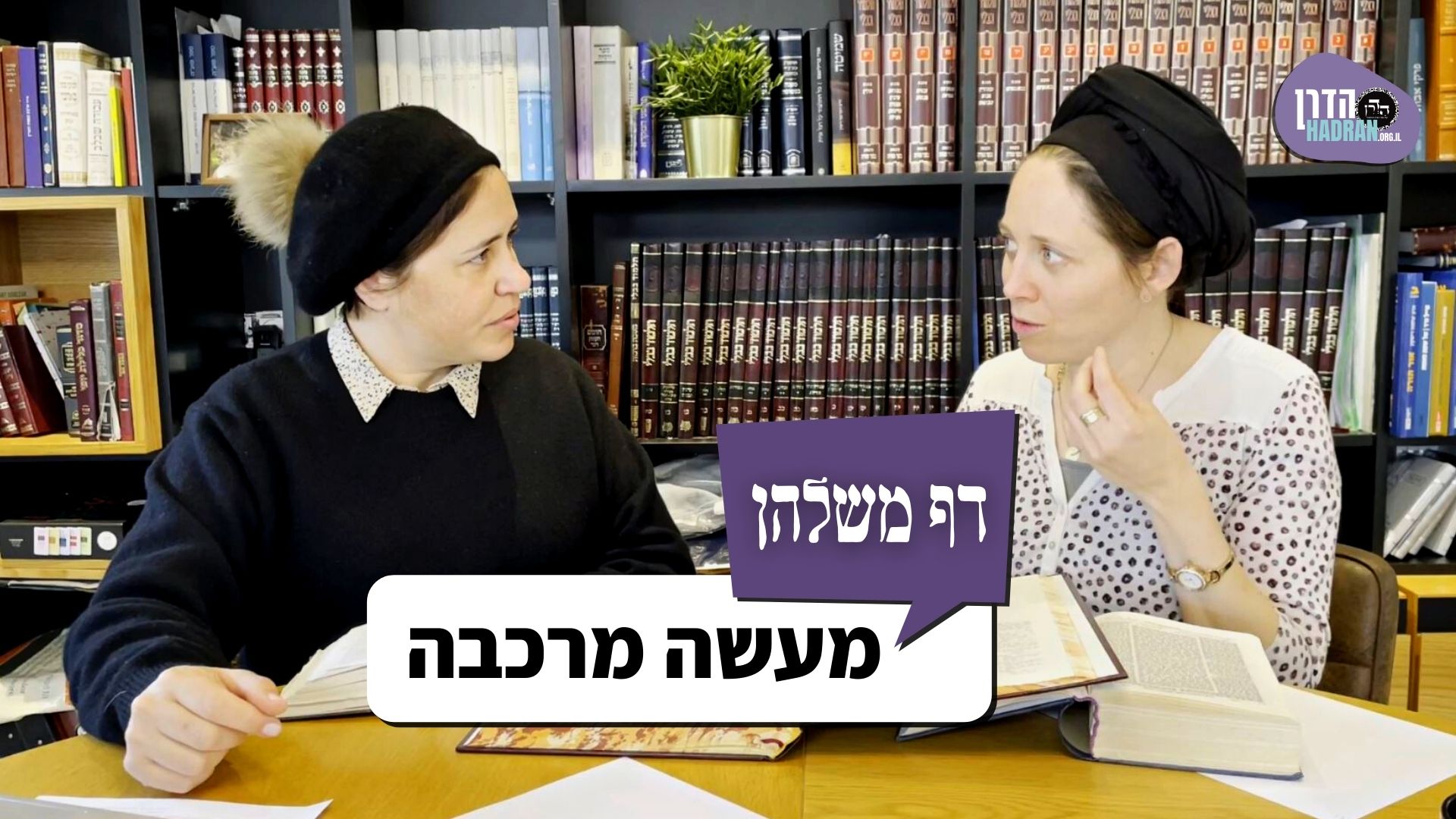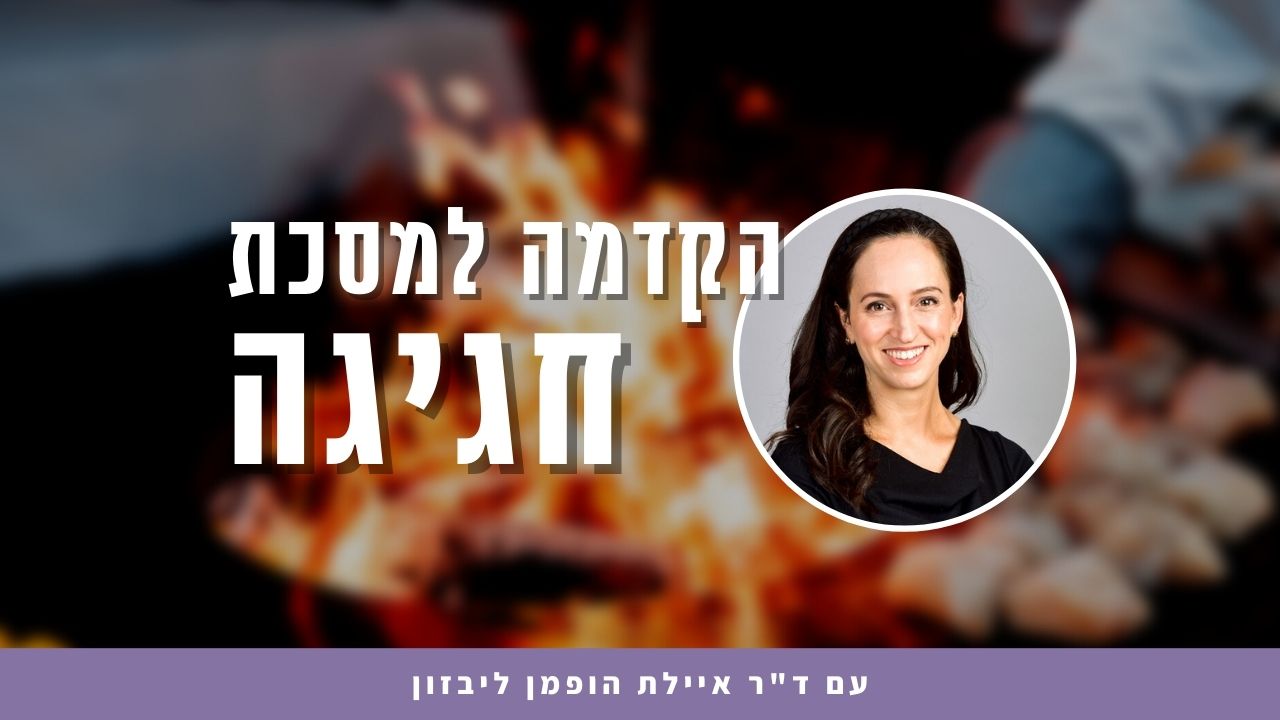חגיגה ז
הַפֵּאָה, וְהַבִּכּוּרִים, וְהָרֵאָיוֹן, וּגְמִילוּת חֲסָדִים, וְתַלְמוּד תּוֹרָה.
Produce in the corner of the field that must be left unharvested, which is given to the poor [pe’a]; and the first fruits, which are brought to the Temple; and the appearance in the Temple on the pilgrim Festivals; and acts of loving-kindness; and Torah study.
אָמַר רַבִּי יוֹחָנָן: כִּסְבוּרִין אָנוּ לוֹמַר, הָרֵאָיוֹן אֵין לוֹ שִׁיעוּר — לְמַעְלָה, אֲבָל יֵשׁ לוֹ שִׁיעוּר — לְמַטָּה, עַד שֶׁבָּא רַבִּי אוֹשַׁעְיָא בְּרַבִּי, וְלִימֵּד: הָרֵאָיוֹן אֵין לוֹ שִׁיעוּר לֹא לְמַעְלָה וְלֹא לְמַטָּה. אֲבָל חֲכָמִים אוֹמְרִים: הָרְאִיָּיה מָעָה כֶּסֶף, וְהַחֲגִיגָה שְׁתֵּי כֶסֶף.
Rabbi Yoḥanan said: We thought to say that the mitzva of appearance in the Temple does not have a maximum measure, but it does have a minimum measure; until Rabbi Oshaya the Distinguished came and taught: The mitzva of appearance has neither a maximum nor a minimum measure. However, the Rabbis say: The burnt-offering of appearance must be worth one silver ma’a and the Festival peace-offering two silver coins.
מַאי הָרֵאָיוֹן? רַבִּי יוֹחָנָן אָמַר: רְאִיַּית פָּנִים בַּעֲזָרָה, וְרֵישׁ לָקִישׁ אָמַר: רְאִיַּית פָּנִים בְּקׇרְבָּן.
§ What is the mitzva of appearance to which this mishna is referring? Rabbi Yoḥanan said: It is the mitzva of the appearance of one’s face in the Temple courtyard. One may appear in the Temple as often as he likes over the course of a Festival. And Reish Lakish said: It is the appearance of one’s face in the Temple with an offering. There is no measure in this regard, as every time one appears in the Temple during a Festival he must bring an offering.
בָּעִיקָּר הָרֶגֶל, כּוּלֵּי עָלְמָא לָא פְּלִיגִי דִּרְאִיַּית פָּנִים בְּקׇרְבָּן. כִּי פְּלִיגִי בִּשְׁאָר יְמוֹת הָרֶגֶל: כׇּל הֵיכָא דַּאֲתָא וְאַיְיתִי — כּוּלֵּי עָלְמָא לָא פְּלִיגִי דִּמְקַבְּלִינַן מִינֵּיהּ, כִּי פְּלִיגִי דַּאֲתָא וְלָא אַיְיתִי.
The Gemara explains: On the main i.e., on the first, day of the pilgrimage Festival, everyone agrees that the appearance of one’s face must be accompanied by an offering. When they disagree, it is with regard to the rest of the days of the pilgrimage Festival, i.e., whether or not one who appears must sacrifice an offering. Furthermore, anywhere, i.e., in any case that one comes and brings an offering, everyone agrees that we accept it from him. When they disagree, it is when he comes and does not bring an offering. Is this man obligated to bring an offering or not?
דְּרַבִּי יוֹחָנָן סָבַר: רְאִיַּית פָּנִים בָּעֲזָרָה, דְּכׇל אֵימַת דְּאָתֵי לָא צָרִיךְ לְאֵתוֹיֵי, רֵישׁ לָקִישׁ אָמַר: רְאִיַּית פָּנִים בְּקׇרְבָּן, דְּכׇל אֵימַת דְּאָתֵי צָרִיךְ לְאֵתוֹיֵי.
The Gemara explains that Rabbi Yoḥanan holds that the mitzva is merely the appearance of one’s face in the Temple courtyard. Therefore, one doesn’t need to bring an offering whenever he comes to the Temple. Reish Lakish said that the mitzva is the appearance of one’s face with an offering, which means that whenever one comes he must bring an offering with him.
אֵיתִיבֵיהּ רֵישׁ לָקִישׁ לְרַבִּי יוֹחָנָן: ״וְלֹא יֵרָאוּ פָנַי רֵיקָם״! אֲמַר לֵיהּ: בְּעִיקַּר הָרֶגֶל.
Reish Lakish raised an objection to the opinion of Rabbi Yoḥanan. The verse states: “Three times you shall keep a feast for Me in the year…and none shall appear before Me empty-handed” (Exodus 23:14–15). This verse indicates that one must bring an offering whenever he appears in the Temple. Rabbi Yoḥanan said to him: That obligation applies only on the main day of the pilgrimage Festival, but not on the rest of the Festival days.
אֵיתִיבֵיהּ: ״וְלֹא יֵרָאוּ פָנַי רֵיקָם״ — בִּזְבָחִים. אַתָּה אוֹמֵר בִּזְבָחִים, אוֹ אֵינוֹ אֶלָּא בְּעוֹפוֹת וּמְנָחוֹת? וְדִין הוּא: נֶאֶמְרָה חֲגִיגָה לַהֶדְיוֹט, וְנֶאֶמְרָה רְאִיָּיה לַגָּבוֹהַּ. מָה חֲגִיגָה הָאֲמוּרָה לַהֶדְיוֹט — זְבָחִים, אַף רְאִיָּיה הָאֲמוּרָה לַגָּבוֹהַּ — זְבָחִים.
Reish Lakish raised an objection to the opinion of Rabbi Yoḥanan from a baraita: “And none shall appear before Me empty-handed.” This teaches that Festival pilgrims must appear with animal offerings. Do you say that they must appear with animal offerings, or perhaps it is only with bird-offerings or meal-offerings? And it is possible to determine the answer by logical derivation: It is stated that one must bring a Festival peace-offering for a commoner to eat, and it is stated that one must bring a burnt-offering of appearance, which is for God. Just as the Festival peace-offering that is stated for a commoner is referring to animal offerings, so too, the burnt-offering of appearance that is stated to be sacrificed wholly for God is referring to animal offerings.
וּמָה הֵן זְבָחִים — עוֹלוֹת. אַתָּה אוֹמֵר עוֹלוֹת, אוֹ אֵינוֹ אֶלָּא שְׁלָמִים? וְדִין הוּא: נֶאֶמְרָה חֲגִיגָה לַהֶדְיוֹט, וְנֶאֶמְרָה רְאִיָּיה לַגָּבוֹהַּ. מָה חֲגִיגָה הָאֲמוּרָה לַהֶדְיוֹט — בְּרָאוּי לוֹ, אַף רְאִיָּיה הָאֲמוּרָה לַגָּבוֹהַּ — בְּרָאוּי לוֹ.
And what are these animal offerings that the Festival pilgrims sacrifice to God? Burnt-offerings. Do you say that they are burnt-offerings, or perhaps it is only that they are peace-offerings? And it is possible to determine the answer by logical derivation: It is stated that one must bring a Festival peace-offering for a commoner, and it is stated that one must bring a burnt-offering of appearance, which is solely for God. Just as the Festival peace-offering that is stated for a commoner is referring to an offering that is fitting for him to eat, i.e., a peace-offering, so too, the burnt-offering of appearance that is stated to be for God is referring to an offering that is fitting for Him, i.e., a burnt-offering, which is entirely consumed on the altar.
וְכֵן בְּדִין: שֶׁלֹּא יְהֵא שׁוּלְחָנְךָ מָלֵא, וְשׁוּלְחַן רַבְּךָ רֵיקָם. אֲמַר לֵיהּ: בְּעִיקַּר הָרֶגֶל.
And similarly, one can learn by logical derivation that your table should not be full of meat while your Master’s table, i.e., the altar, is empty. This indicates that one must sacrifice a burnt-offering whenever one appears in the Temple, which contradicts the opinion of Rabbi Yoḥanan. Rabbi Yoḥanan again said to him: This obligation applies only on the main day of the pilgrimage Festival.
אֵיתִיבֵיהּ, רַבִּי יוֹסֵי בְּרַבִּי יְהוּדָה אוֹמֵר: שָׁלֹשׁ רְגָלִים בַּשָּׁנָה נִצְטַוּוּ יִשְׂרָאֵל לַעֲלוֹת בָּרֶגֶל: בְּחַג הַמַּצּוֹת וּבְחַג הַשָּׁבוּעוֹת וּבְחַג הַסּוּכּוֹת. וְאֵין נִרְאִין חֲצָאִין, מִשּׁוּם שֶׁנֶּאֱמַר: ״כׇּל זְכוּרְךָ״, וְאֵין נִרְאִין רֵיקָנִים, מִשּׁוּם שֶׁנֶּאֱמַר: ״וְלֹא יֵרָאוּ פָנַי רֵיקָם״! אֲמַר לֵיהּ: בְּעִיקַּר הָרֶגֶל.
Reish Lakish raised another objection to the opinion of Rabbi Yoḥanan. Rabbi Yosei, son of Rabbi Yehuda, says: Three times a year the Jewish people were commanded to ascend on the pilgrimage Festival: On Passover, on Shavuot, and on Sukkot. They may not appear partially, i.e., only some of the people, because it is stated: “All your males” (Exodus 23:17). And they may not appear empty-handed, because it is stated: “And none shall appear before Me empty-handed” (Exodus 23:15). Rabbi Yoḥanan said to him: That too is referring to the main day of the pilgrimage Festival.
אֵיתִיבֵיהּ רַבִּי יוֹחָנָן לְרֵישׁ לָקִישׁ: ״יֵרָאֶה״ ״יִרְאֶה״ — מָה אֲנִי בְּחִנָּם, אַף אַתֶּם בְּחִנָּם.
Rabbi Yoḥanan raised an objection to the opinion of Reish Lakish from a baraita: The verse states: “All your males shall appear.” Although the verse as written can be read: “Will see [yireh],” it is actually read: “Shall be seen [yera’e].” The baraita derives that just as I, God, come to see you for free, as He has no obligation to bring an offering when He comes to see us in the Temple, so too, you may come to see Me in the Temple for free, i.e., there is no requirement to bring an offering. The Gemara accepts this objection and therefore proceeds to explain the dispute between Rabbi Yoḥanan and Reish Lakish in a different manner.
אֶלָּא: כֹּל הֵיכָא דַּאֲתָא וְלָא אַיְיתִי — דְּכוּלֵּי עָלְמָא לָא פְּלִיגִי דְּעָיֵיל וּמִתְחֲזֵי וְנָפֵיק, כִּי פְּלִיגִי דַּאֲתָא וְאַיְיתִי.
Rather, with regard to anywhere that one comes to the Temple courtyard after the initial time on the first day of the Festival and he does not bring an offering, everyone agrees that one enters, appears, and exits without having to bring an offering. When they disagree it is in a case where one comes and brings an offering.
רַבִּי יוֹחָנָן דְּאָמַר: רְאִיַּית פָּנִים בָּעֲזָרָה — רְאִיַּית פָּנִים הוּא דְּאֵין לָהּ שִׁיעוּר, הָא לְקׇרְבָּן — יֵשׁ לָהּ שִׁיעוּר. וְרֵישׁ לָקִישׁ אָמַר: רְאִיַּית פָּנִים — בְּקׇרְבָּן, דַּאֲפִילּוּ קׇרְבָּן נָמֵי אֵין לוֹ שִׁיעוּר.
The Gemara explains: Rabbi Yoḥanan, who says that the appearance mentioned in the mishna is referring to the appearance of one’s face in the Temple courtyard, maintains that it is this appearance itself that has no maximum measure, i.e., one may appear as often as he wishes without an offering. However, there is a maximum measure, i.e., a limited number of offerings, that one may bring; only one burnt-offering of appearance per Festival. And Reish Lakish said: The appearance of one’s face means with an offering, as even offerings have no maximum measure. One may bring as many offerings during the Festival as he wishes.
אֵיתִיבֵיהּ: ״הֹקַר רַגְלְךָ מִבֵּית רֵעֶךָ״. הָתָם בְּחַטָּאוֹת וַאֲשָׁמוֹת.
Rabbi Yoḥanan raised an objection to the opinion of Reish Lakish: “Let your foot be seldom in your neighbor’s house, lest he be sated with you, and hate you” (Proverbs 25:17). It can be inferred from this verse that one should not bring extra gifts, i.e., offerings, to God. The Gemara responds: There, the verse is referring to sin-offerings and guilt-offerings, i.e., it is better not to sin in the first place.
כִּדְרַבִּי לֵוִי. דְּרַבִּי לֵוִי רָמֵי, כְּתִיב: ״הֹקַר רַגְלְךָ מִבֵּית רֵעֶךָ״, וּכְתִיב: ״אָבוֹא בֵיתְךָ בְעוֹלוֹת״! לָא קַשְׁיָא: כָּאן בְּחַטָּאוֹת וַאֲשָׁמוֹת, כָּאן בְּעוֹלוֹת וּשְׁלָמִים.
This explanation is in accordance with the opinion of Rabbi Levi, as Rabbi Levi raised a contradiction between two verses. It is written: “Let your foot be seldom in your neighbor’s house,” and it is written: “I will come into Your house with burnt-offerings, I will perform for You my vows” (Psalms 66:13). Rabbi Levi explained: This is not difficult; here, the verse is referring to sin-offerings and guilt-offerings, and there, it is referring to burnt-offerings and peace-offerings, concerning which one may bring as many as he likes.
תַּנְיָא נָמֵי הָכִי: ״הֹקַר רַגְלְךָ מִבֵּית רֵעֶךָ״ — בְּחַטָּאוֹת וַאֲשָׁמוֹת הַכָּתוּב מְדַבֵּר. אַתָּה אוֹמֵר בְּחַטָּאוֹת וַאֲשָׁמוֹת, אוֹ אֵינוֹ אֶלָּא בְּעוֹלוֹת וּשְׁלָמִים? כְּשֶׁהוּא אוֹמֵר: ״אָבוֹא בֵיתְךָ בְעוֹלוֹת אֲשַׁלֵּם לְךָ נְדָרָי״ — הֲרֵי עוֹלוֹת וּשְׁלָמִים אָמוּר, הָא מָה אֲנִי מְקַיֵּים ״הֹקַר רַגְלְךָ מִבֵּית רֵעֶךָ״ — בְּחַטָּאוֹת וַאֲשָׁמוֹת הַכָּתוּב מְדַבֵּר.
That opinion is also taught in a baraita: “Let your foot be seldom in your neighbor’s house.” The verse is speaking of sin-offerings and guilt-offerings. Do you say it is referring to sin-offerings and guilt-offerings, or perhaps it is only referring to burnt-offerings and peace-offerings? When it says: “I will come into Your house with burnt-offerings, I will perform for You my vows,” burnt-offerings and peace-offerings are mentioned, as these are more pleasant to sacrifice to God. How then do I uphold the meaning of the verse: “Let your foot be seldom in your neighbor’s house”? The verse is speaking of sin-offerings and guilt-offerings.
וְאֵין נִרְאִין חֲצָאִין כּוּ׳. סָבַר רַב יוֹסֵף לְמֵימַר: מַאן דְּאִית לֵיהּ עֲשָׂרָה בָּנִים, לָא לִיסְּקוּ הָאִידָּנָא חַמְשָׁה וּלְמָחָר חַמְשָׁה.
§ Earlier the baraita taught: The people may not appear partially, as the verse states: “All your males” (Exodus 23:17). Rav Yosef thought to say: One who has ten sons should not let five ascend now and the other five tomorrow. Rather, they must all ascend to the Temple together.
אֲמַר לֵיהּ אַבָּיֵי: פְּשִׁיטָא, הֵי מִינַּיְיהוּ מְשַׁוֵּית לְהוּ פּוֹשְׁעִים, וְהֵי מִינַּיְיהוּ מְשַׁוֵּית לְהוּ זְרִיזִין!
Abaye said to him: This is obvious; which of his sons would he render sinners, who are too lazy to ascend, and which of them would he render vigilant, eager to perform the mitzva at the first opportunity?
אֶלָּא קְרָא לְמַאי אֲתָא? לִכְדַאֲחֵרִים. דְּתַנְיָא, אֲחֵרִים אוֹמְרִים: הַמְקַמֵּץ, וְהַמְצָרֵף נְחֹשֶׁת, וְהַבּוּרְסִי — פְּטוּרִין מִן הָרְאִיָּיה, שֶׁנֶּאֱמַר: ״כׇּל זְכוּרְךָ״, מִי שֶׁיָּכוֹל לַעֲלוֹת עִם כׇּל זְכוּרְךָ. יָצְאוּ אֵלּוּ, שֶׁאֵין יְכוֹלִין לַעֲלוֹת עִם כׇּל זְכוּרְךָ.
Rather, for what purpose does the verse: “All your males,” come? It comes to teach that which Aḥerim taught. As it is taught in a baraita: Aḥerim say that a scrimper, one who gathers dog feces to give them to tanners for the purpose of tanning hides; a melder of copper, who purifies copper from dross; and a tanner of hides are all exempt from the mitzva of appearance, as their occupation inflicts upon them an unpleasant odor. As it is stated: “All your males,” which indicates that only one who is able to ascend with all your males is obligated, excluding these. As people avoid their company, they cannot ascend with all your males.
מַתְנִי׳ עוֹלוֹת בַּמּוֹעֵד בָּאוֹת מִן הַחוּלִּין, וְהַשְּׁלָמִים מִן הַמַּעֲשֵׂר. יוֹם טוֹב הָרִאשׁוֹן שֶׁל פֶּסַח, בֵּית שַׁמַּאי אוֹמְרִים: מִן הַחוּלִּין, וּבֵית הִלֵּל אוֹמְרִים: מִן הַמַּעֲשֵׂר.
MISHNA: Burnt-offerings that one sacrifices on the intermediate days of the Festival must come from non-sacred property, not from sacred property such as second-tithe money. But the peace-offerings may be brought from the second tithe, i.e., from money with which one redeemed second tithe, which is subsequently used to purchase food in Jerusalem. With regard to the Festival peace-offering sacrificed on the first day of the festival of Passover, Beit Shammai say: It must come from non-sacred property, and Beit Hillel say: It may be brought even from the second tithe.
יִשְׂרָאֵל יוֹצְאִין יְדֵי חוֹבָתָן בִּנְדָרִים וּנְדָבוֹת וּבְמַעְשַׂר בְּהֵמָה. וְהַכֹּהֲנִים בְּחַטָּאוֹת וַאֲשָׁמוֹת וּבִבְכוֹר, וּבְחָזֶה וָשׁוֹק. אֲבָל לֹא בְּעוֹפוֹת, וְלֹא בִּמְנָחוֹת.
In general, Israelites fulfill their obligation to eat peace-offerings of rejoicing with their voluntary vows and gift offerings donated during the year and sacrificed on the Festival; and likewise with animal tithes. And the priests fulfill their obligation of rejoicing with the meat of sin-offerings and guilt-offerings and with firstborn offerings, as the priests receive a portion of these, and with the breast and thigh of peace-offerings, to which they are also entitled. However, they do not fulfill their obligation with birds, e.g., a bird sacrificed as a sin-offering, nor with meal-offerings, as only the eating of meat constitutes rejoicing.
גְּמָ׳ אֶלָּא: עוֹלוֹת — בַּמּוֹעֵד הוּא דְּבָאוֹת מִן הַחוּלִּין, הָא בְּיוֹם טוֹב — מִן הַמַּעֲשֵׂר? אַמַּאי, דָּבָר שֶׁבְּחוֹבָה, הִיא! וְכׇל דָּבָר שֶׁבְּחוֹבָה, אֵינוֹ בָּא אֶלָּא מִן הַחוּלִּין.
GEMARA: When the mishna states that burnt-offerings sacrificed during the intermediate days of the Festival may come from non-sacred property, this leads to the surprising conclusion that on the Festival they may even come from the second tithe. The Gemara asks: Why should this be the case? The burnt-offering is an obligatory matter, and there is a principle that any obligatory matter with regard to offerings may come only from non-sacred property that was consecrated expressly for this purpose alone, not from property that was previously consecrated for another purpose.
וְכִי תֵּימָא: הָא קָא מַשְׁמַע לַן דְּעוֹלוֹת בַּמּוֹעֵד בָּאוֹת, בְּיוֹם טוֹב אֵינָן בָּאוֹת, כְּמַאן — כְּבֵית שַׁמַּאי?!
And if you would say that this teaches us that burnt-offerings may come, i.e., be sacrificed, on the intermediate days of the Festival, whereas on the Festival they may not come at all, in accordance with whose opinion is this mishna? It is in accordance with the opinion of Beit Shammai.
דִּתְנַן, בֵּית שַׁמַּאי אוֹמְרִים: מְבִיאִין שְׁלָמִים וְאֵין סוֹמְכִין עֲלֵיהֶן, אֲבָל לֹא עוֹלוֹת. וּבֵית הִלֵּל אוֹמְרִים: מְבִיאִין שְׁלָמִים וְעוֹלוֹת, וְסוֹמְכִין עֲלֵיהֶן.
As we learned in a mishna (Beitza 19a) that Beit Shammai say: One brings peace-offerings on a Festival, but one does not place his hands on them, as placing one’s hands on an animal on a Festival is prohibited by rabbinic law. However, one may not sacrifice burnt-offerings at all, as they are not eaten, and slaughtering is permitted on a Festival only for human needs. And Beit Hillel say: One brings both peace-offerings and burnt-offerings, and one does place his hands on them. It is unlikely that an anonymous mishna would follow the opinion of Beit Shammai, whose rulings are not accepted as halakha.
חַסּוֹרֵי מִיחַסְּרָא וְהָכִי קָתָנֵי: עוֹלוֹת נְדָרִים וּנְדָבוֹת — בַּמּוֹעֵד בָּאוֹת, בְּיוֹם טוֹב — אֵינָן בָּאוֹת. וְעוֹלַת רְאִיָּיה בָּאָה אֲפִילּוּ בְּיוֹם טוֹב, וּכְשֶׁהִיא בָּאָה — אֵינָהּ בָּאָה אֶלָּא מִן הַחוּלִּין. וְשַׁלְמֵי שִׂמְחָה בָּאִין אַף מִן הַמַּעֲשֵׂר. וַחֲגִיגַת יוֹם טוֹב הָרִאשׁוֹן שֶׁל פֶּסַח, בֵּית שַׁמַּאי אוֹמְרִים: מִן הַחוּלִּין, וּבֵית הִלֵּל אוֹמְרִים: מִן הַמַּעֲשֵׂר.
The Gemara answers: This mishna is incomplete, and this is what it is teaching: Burnt-offerings brought as a fulfillment of one’s vow or as gift offerings may come on the intermediate days of the Festival. However, on the Festival itself they may not come. And the burnt-offering of appearance comes even on the Festival, but when it comes, it may come only from non-sacred property, as it is obligatory. And peace-offerings of rejoicing may come even from the second tithe. And with regard to the Festival peace-offering brought on the first day of Passover, Beit Shammai say: It may come only from non-sacred property, and Beit Hillel say: It may come even from the second tithe.
תַּנְיָא נָמֵי הָכִי: עוֹלוֹת, נְדָרִים וּנְדָבוֹת — בַּמּוֹעֵד בָּאוֹת, בְּיוֹם טוֹב — אֵינָן בָּאוֹת. וְעוֹלַת רְאִיָּיה בָּאָה אֲפִילּוּ בְּיוֹם טוֹב. וּכְשֶׁהִיא בָּאָה — אֵינָהּ בָּאָה אֶלָּא מִן הַחוּלִּין. וְשַׁלְמֵי שִׂמְחָה בָּאִין אַף מִן הַמַּעֲשֵׂר. וַחֲגִיגַת יוֹם טוֹב הָרִאשׁוֹן שֶׁל פֶּסַח, בֵּית שַׁמַּאי אוֹמְרִים: מִן הַחוּלִּין, וּבֵית הִלֵּל אוֹמְרִים: מִן הַמַּעֲשֵׂר.
That opinion is also taught in a baraita: Burnt-offerings brought as a fulfillment of one’s vow or as gift offerings may come on the intermediate days of the Festival. However, on the Festival itself they may not come. And the burnt-offering of appearance comes even on the Festival, but when it comes it may come only from non-sacred property. And peace-offerings of rejoicing may come even from the second tithe. And with regard to the Festival peace-offering brought on the first day of the festival of Passover, Beit Shammai say: It may come only from non-sacred property, and Beit Hillel say: It may come even from the second tithe.
מַאי שְׁנָא חֲגִיגַת יוֹם טוֹב הָרִאשׁוֹן שֶׁל פֶּסַח? אָמַר רַב אָשֵׁי: הָא קָא מַשְׁמַע לַן, חֲגִיגַת חֲמִשָּׁה עָשָׂר — אִין, חֲגִיגַת אַרְבָּעָה עָשָׂר — לָא.
The Gemara asks: What is different about the Festival peace-offering brought on the first day of the festival of Passover? Rav Ashi said: This emphasis on the specific date teaches us that for the Festival peace-offering of the fifteenth, i.e., the pilgrimage Festival offerings brought on the first day of Passover, yes, this restriction applies; however, for the Festival peace-offering of the fourteenth, no, this limitation is not in force. If the Paschal lamb was too small for a group, they would bring an additional peace-offering so that the Paschal lamb could be eaten when one was full. This offering was called the Festival peace-offering of the fourteenth of Nisan. Since this offering is not obligatory, everyone agrees that it may be purchased with second-tithe money.

